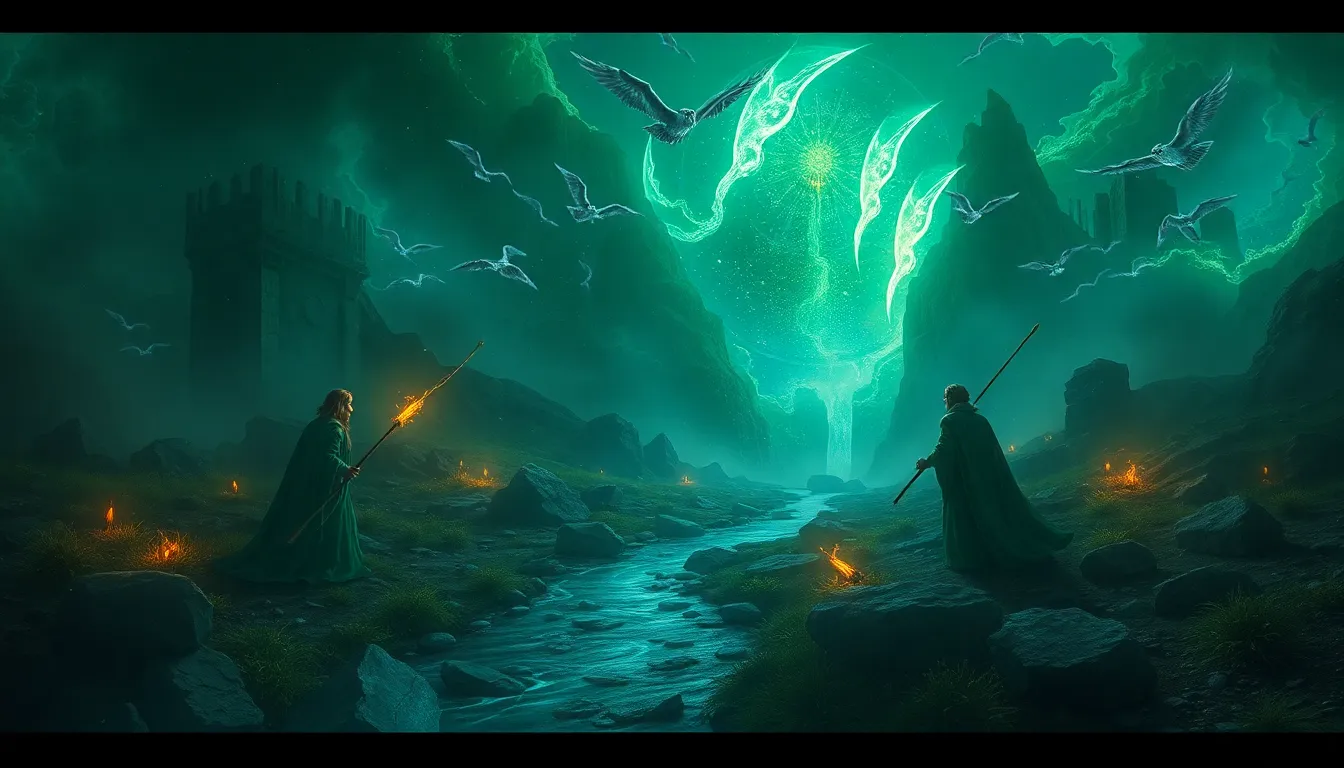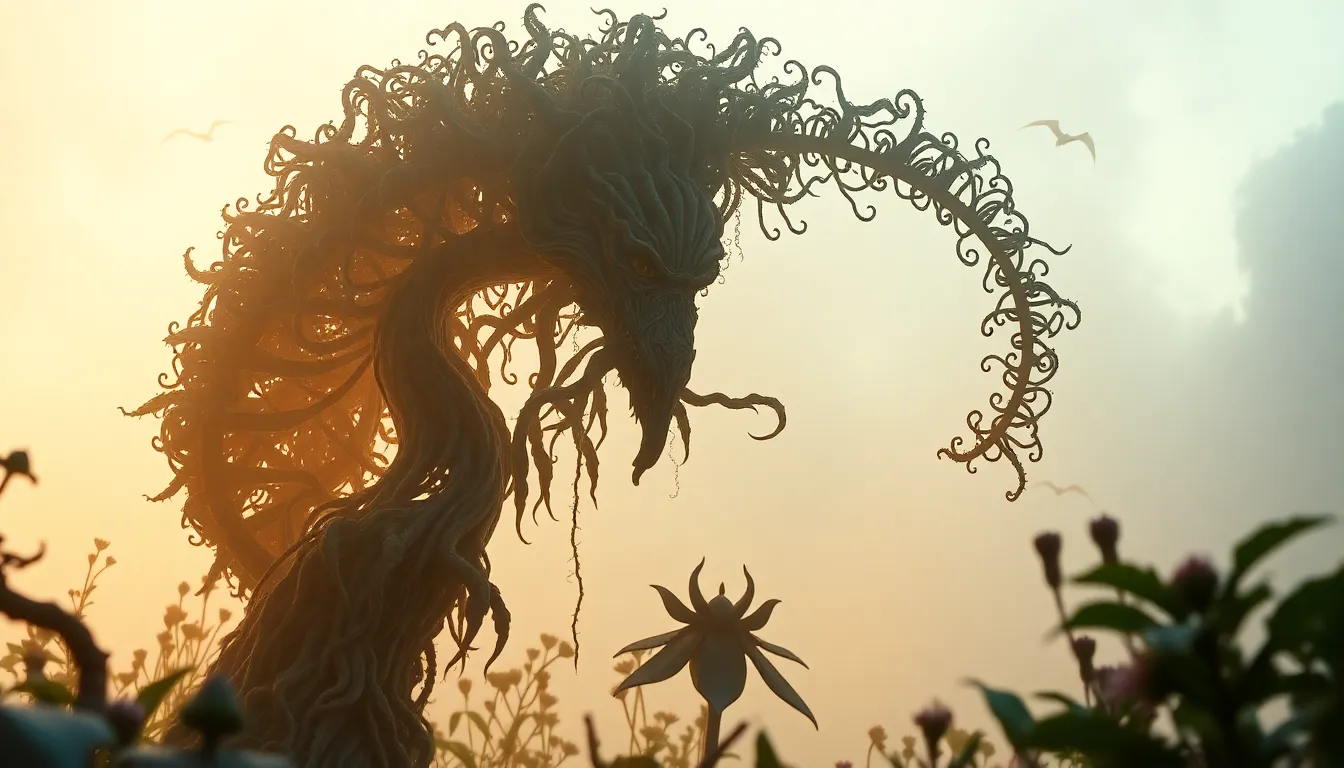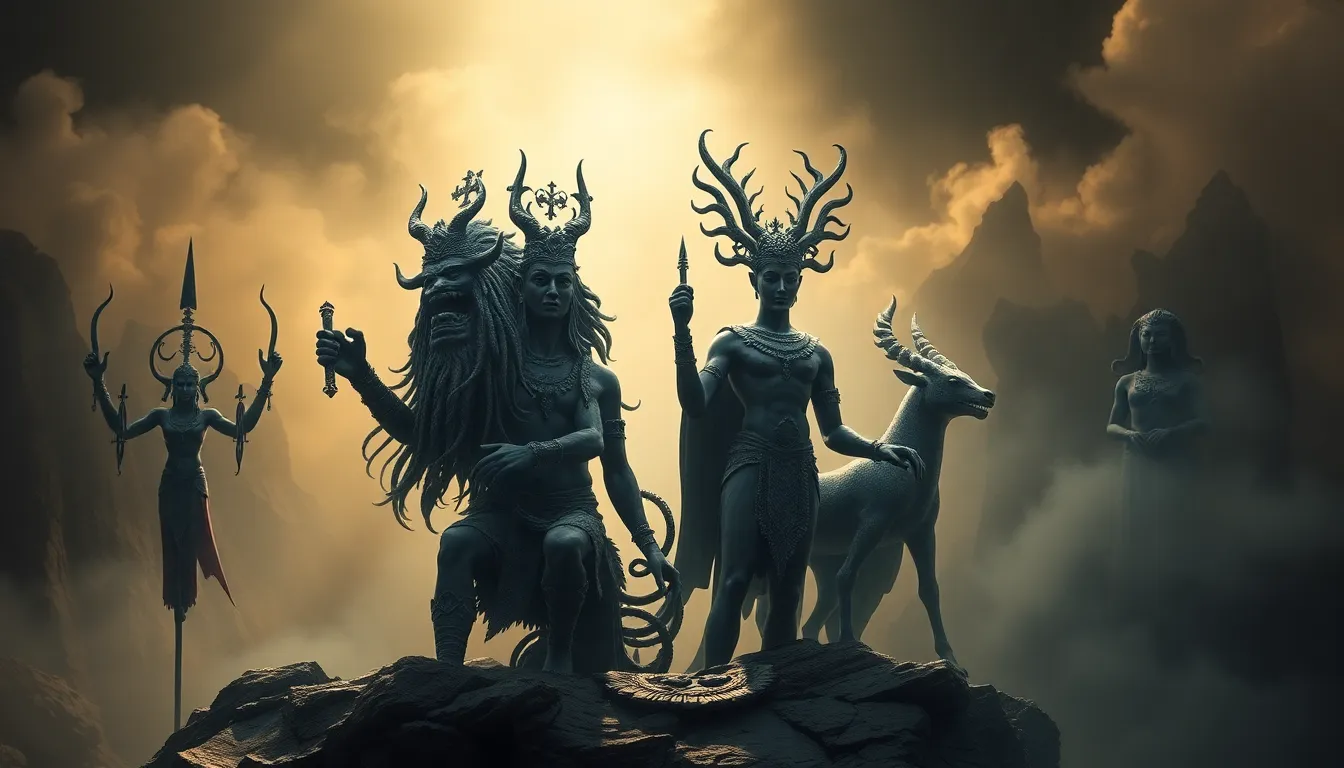Moral Myths and the Nature of Fate: Lessons from Legends
I. Introduction
Moral myths are narratives that convey ethical lessons and cultural values, often wrapping profound truths in engaging stories. They serve as a mirror reflecting societal norms, shaping individual behavior and collective conscience. These myths are not simply tales; they are foundational elements that guide moral reasoning and decision-making across generations.
Fate, on the other hand, is a concept that permeates various cultures, often depicted as a predetermined path that individuals are destined to follow. In legends, fate intertwines with moral lessons, creating rich narratives that explore the consequences of human actions. This article aims to delve into the interplay between moral lessons and fate in legendary narratives, revealing how these stories continue to resonate with us today.
II. The Concept of Moral Myths
Moral myths serve several essential functions in human society. They provide a framework for understanding right and wrong, offering guidance on how to navigate life’s complexities. These myths often encapsulate the values of a culture, reinforcing social norms and expectations.
Some well-known examples of moral myths from various cultures include:
- The story of Prometheus in Greek mythology, symbolizing the themes of sacrifice and the consequences of defiance against divine authority.
- The tale of the Good Samaritan from Christian tradition, illustrating the importance of compassion and helping others regardless of societal barriers.
- The fable of the Tortoise and the Hare, emphasizing the virtues of perseverance and humility.
The psychological impact of these myths is significant. They influence individual behavior by providing models for moral conduct, shaping societal norms, and fostering a sense of community through shared values.
III. Understanding Fate in Mythological Contexts
Fate can be understood as the predetermined course of events that is often beyond human control. Different cultures interpret fate in various ways, ranging from a rigid, unchangeable destiny to a more fluid concept where choices can alter outcomes.
In many mythological narratives, fate plays a crucial role in shaping the destinies of characters. For instance:
- In Greek mythology, the Moirai (Fates) control the thread of life, determining the span and quality of each person’s existence.
- In Hindu philosophy, karma influences fate, suggesting that one’s actions in this life affect future incarnations.
A comparative analysis reveals that in Western mythologies, fate is often viewed as a fixed path (e.g., the Oedipus myth), while Eastern traditions might present a more dynamic interplay between fate and personal agency (e.g., the concept of karma in Buddhism).
IV. Key Legends Illustrating Moral Lessons
Several legendary tales vividly illustrate the relationship between moral lessons and the concept of fate:
A. The Greek myth of Oedipus: The inescapability of fate
The tale of Oedipus epitomizes the tragic intersection of fate and moral choice. Despite his efforts to avoid the prophecy that he would kill his father and marry his mother, Oedipus ultimately fulfills his fate. This narrative raises profound questions about free will and preordained destiny.
B. The Norse tale of Ragnarok: Morality in the face of an inevitable end
Ragnarok, the prophesied end of the world in Norse mythology, illustrates the inevitability of fate while emphasizing moral courage. The gods, aware of their impending doom, confront their fates with valor, underscoring the importance of facing consequences with integrity.
C. The Hindu epic of Mahabharata: Duty, righteousness, and the role of fate
The Mahabharata conveys complex moral dilemmas and the concept of dharma (duty). Characters like Arjuna grapple with their fates, driven by their moral responsibilities. This epic emphasizes that moral choices can influence one’s path, even within the framework of fate.
V. The Interplay Between Morality and Fate
In many legends, moral choices significantly influence the concept of fate. Characters often face dilemmas where their decisions can lead to radically different outcomes, suggesting that while fate may set the stage, individual agency plays a crucial role.
Consider the following case studies:
- In the tale of King Solomon, his wisdom and moral choices lead to a just resolution, altering the fates of those involved.
- The story of Macbeth illustrates how moral ambition can lead to a self-fulfilling prophecy, demonstrating the complex relationship between free will and destiny.
This interplay invites a deeper discussion on the balance between free will and destiny in moral myths, prompting us to consider how our choices shape our lives even when faced with seemingly predetermined outcomes.
VI. The Role of Deities and Supernatural Forces
Deities and supernatural forces often play a pivotal role in shaping moral narratives and influencing characters’ fates. In many cultures, gods are depicted as powerful beings who intervene in human affairs, guiding or challenging mortals.
For instance, in Greek mythology, the gods frequently meddle in the lives of heroes, showcasing their whims and desires. This divine intervention raises ethical questions regarding the nature of agency:
- Do humans have the power to shape their destinies, or are they merely pawns in a divine game?
- What are the ethical implications of divine beings holding sway over human fates?
VII. Modern Interpretations of Ancient Legends
In contemporary literature and media, ancient moral myths are often reinterpreted to address modern dilemmas. These adaptations reflect evolving societal values and the ongoing relevance of these narratives.
For example:
- Films like “O Brother, Where Art Thou?” reinterpret Homer’s “Odyssey,” exploring themes of morality and fate in a modern context.
- Graphic novels and adaptations of myths, such as Neil Gaiman’s “American Gods,” explore the clash of old and new moralities.
These modern interpretations provide fresh insights into ethical issues today, demonstrating that the lessons from ancient legends remain pertinent.
VIII. Lessons Learned from Moral Myths and Fate
Through the analysis of moral myths and the nature of fate, several key takeaways emerge:
- The importance of moral decision-making in shaping one’s fate.
- Understanding fate can provide clarity in ethical dilemmas, encouraging individuals to reflect on their choices.
- Lessons from legends can guide real-life situations, fostering a deeper understanding of morality and responsibility.
IX. Critiques and Counterarguments
Despite the enduring significance of moral myths, critiques arise regarding their relevance in a postmodern society. Some argue that these narratives oversimplify complex moral issues, while others challenge the deterministic view of fate, advocating for a more nuanced understanding of free will.
Debates surrounding the role of moral myths prompt important questions, including:
- Can moral lessons from ancient legends be adapted to contemporary ethical dilemmas?
- How do we reconcile the tension between fate and personal agency in our lives?
Ultimately, exploring these critiques enriches our understanding of moral myths and their role in shaping human experience.



